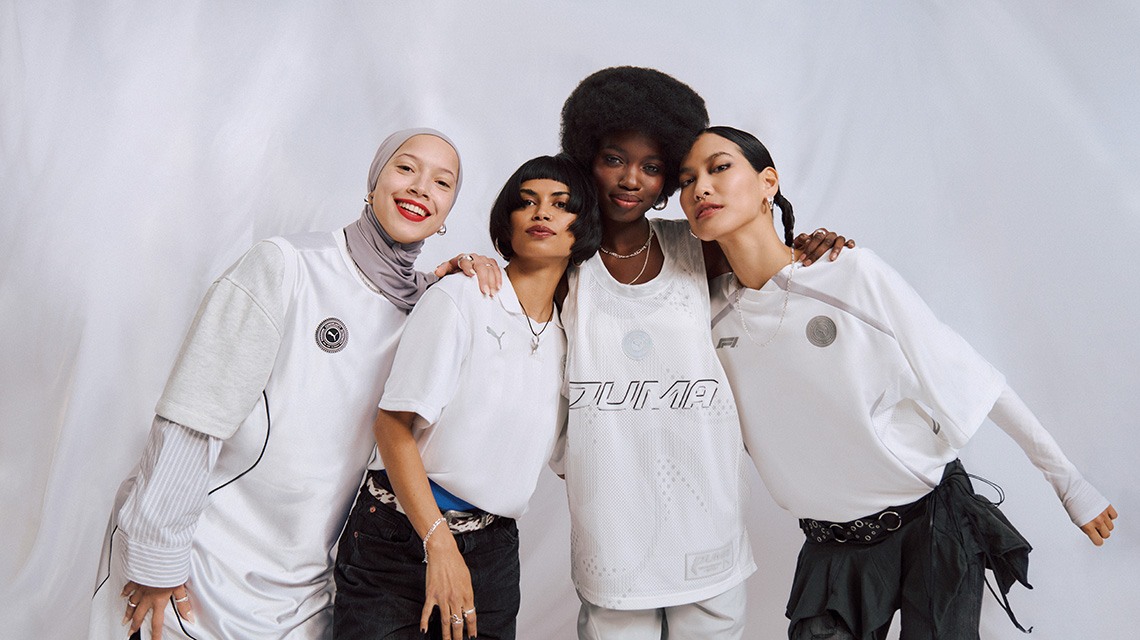
Let’s Talk About
Mental Health for
Women in Sports
International Women’s Day Special
March 8, 2025International Women’s Day Special
March 8, 2025Behind the wins you see on screen, mental health struggles often go unseen for female athletes. While participating in professional sports can foster confidence, resilience and an exhilarating sense of purpose, it would be misleading to ignore the unique psychological challenges and gender-specific pressures that women in athletics face. This International Women’s Day we’re bringing the conversation around mental health to the forefront, continuing to break the stigma and support the well-being of our women in sports.
Increased Advocacy & Open Conversations
Sport has the potential to challenge norms and promote equality, and yet it can also perpetuate unhealthy standards. The good news is that we are seeing more and more examples of female athletes openly shifting the narrative by prioritizing their mental health and using their platform for advocacy. Icons are beginning to set a precedent, like Simone Biles withdrawing from Olympic events to protect her well-being, and Naomi Osaka stepping away from tennis to manage anxiety and depression. Ashleigh Barty retired early for personal fulfillment, and Chloe Kim took a break to focus on her mental well-being. Sha’Carri Richardson and Serena Williams have also spoken openly about their struggles, highlighting the importance of mental well-being over competition. Their actions have sparked a broader discussion on the emotional toll of elite sports and the distinctive pressures in this environment.
Navigating a High-Pressure Environment
From body image pressures to media scrutiny, female athletes navigate an environment filled with unique challenges often shaped by outdated societal norms, limited representation, and institutional bias. Some key stressors shaping this landscape include:
- Body Image & Appearance Pressure
Female athletes are often scrutinized as much for their looks as for their skills. Athletes, especially in sports like gymnastics, figure skating, and track, can feel pushed to meet unrealistic body standards. This emphasis on appearance contributes to eating disorders, body dysmorphia, and self-doubt – issues made worse by social media’s relentless comparisons. - Gender Bias & Stereotypes
Although it’s 2025, female athletes still face outdated ideas about their strength, leadership, and resilience. Due to this, many women battle imposter syndrome, feeling the need to work twice as hard for the same recognition. The lack of female coaches and leaders only reinforces these struggles. - Balancing Life & Sport
Unlike many male counterparts, female athletes often juggle multiple identities – student, professional, caregiver – on top of their careers. This balancing act can lead to chronic stress and burnout. - Media Scrutiny, Performance Anxiety & Self-Doubt
Female athletes receive significantly less media coverage than their male counterparts. When they are featured, the focus is often on their appearance, personal lives, or emotions rather than their athletic achievements. Add in the pressure to perform, fear of failure, and public scrutiny, and the mental toll becomes immense. - Cultural & Institutional Barriers
In many cultures, mental health remains a taboo topic. Some athletes fear that speaking out about their struggles will be seen as a weakness, potentially jeopardizing their careers.
Prioritizing Mental Health: What Does it Look Like?
It’s clear that many factors contribute to the pressure surrounding female athletes. To combat this intensity, we need to explore strategies – both individually and as a community – that help athletes prioritize and maintain their mental health. We can break this down into three approaches:
Psychological Strategies
- Seeking professional support: finding a sports psychologist or coach can be incredibly helpful in increasing mental resilience and developing effective tools, while therapy or counselling provides a safe space to manage stress and unpack the emotional burdens. There are also evidence-based methods such as cognitive-behavioral techniques (CBT) which can be effective in reframing negative thoughts and coping with performance anxiety.
- Incorporating mindfulness and stress-relief techniques: meditation, breathing exercises, and yoga reduce anxiety, enhance relaxation, and increase focus and confidence. Mindfulness-Based Stress Reduction (MBSR) is also shown to be incredibly useful for emotional regulation and increased awareness.
- Expressing in a creative outlet: journaling offers a way to process emotions and track self-talk and progress. Studies also show that visualization (through creative expression or meditation) can help manage stress, performance anxiety and self-confidence.
- Prioritizing rest and recovery: research suggests 7–9 hours of quality sleep is crucial for cognitive function, emotional stability, and injury prevention; scheduled breaks and rest periods help to prevent burnout.
- Ensuring proper nutrition and hydration: a balanced diet fuels both the body and mind, while adequate hydration prevents stress and fatigue. It is important to avoid disordered eating patterns with guidance from nutritionists for long-term health and performance.
Social Strategies
- Building a supportive community: open conversations about mental health within teams and amongst coaches help normalize discussions about anxiety and burnout, further reducing stigma.
- Fostering mentorship and role models: programs, where experienced female athletes guide younger ones, can also help to break the pattern and start to change the next generation.
- Engaging in female-focused peer support networks: women-only mental health groups can provide safe spaces to discuss gender-specific challenges.
- Media detoxing: taking social media detox periods can be super useful to clear the mind and have been linked to significant improvements in self-esteem. Teaching female athletes how to critically evaluate media messages about body image and success can also reduce social comparison anxiety.
Systemic Strategies
- Embedding mental health into sports policies: teams should offer mental health resources just as they do for physical injuries, ensuring athletes have access to psychologists in the same manner as physiotherapists.
- Increasing female representation in coaching and leadership: increasing the number of female coaches and sports psychologists ensures that women’s mental health concerns are understood and addressed effectively.
- Menstrual health and mental well-being integration: female athletes often experience hormonal fluctuations that impact mood, anxiety, and performance. Teams should offer period tracking resources to help athletes understand how hormonal changes affect their mental and physical performance.
- Funding for mental health research in women’s sports: More studies are needed on the impact of stress, anxiety, and gender-specific challenges on female athletes’ careers. Grants for women-specific sports psychology research can help create tailored interventions.



